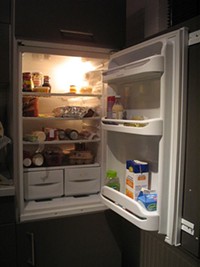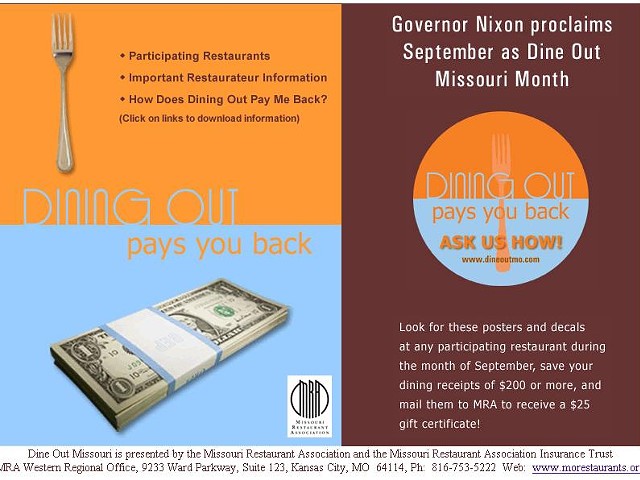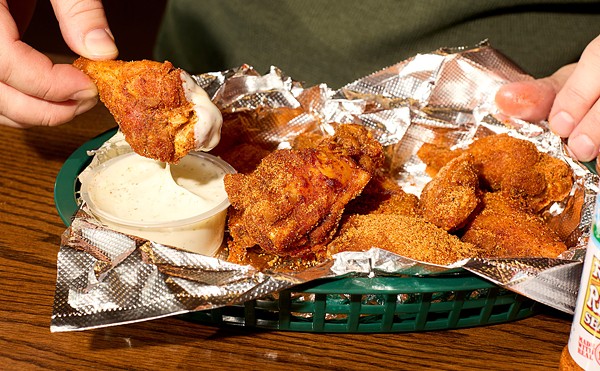The only time I've ever had something remotely close to an argument with another coffee drinker was over how beans should be stored at home. How often have you heard of someone storing their beans one way and thinking, "Oh god, they're ruining that coffee"?
For me, the greater question is why there's no standard storage method. It's the same product sold around the world, but there are so many passionately differing opinions on how to store it properly.
Where's the Scopes Monkey Trial for coffee storage?
I spoke with some local roasters and did a little research of my own to see if I could get any clarity on this topic.
Were coffee more démodé in Denmark than say, murder, Hamlet's famous soliloquy might have gone like this: to freeze or not to freeze. That is the question, but the answers depend on how much coffee you have and how long you want to keep it. Rick Milton, owner of Northwest Coffee Roasting Company recommends an opaque, airtight container at room temperature: "You don't want sunlight hitting the coffee. The sun heats up the coffee and starts to degrade it."
When I asked about freezing coffee, Milton said that there is always concern about the freeze-thaw cycle and the condensation that it creates. Caramelized sugars and oils in the coffee start to lose their punch -- very quickly in at least one drinker's opinion.
Gail Maher, one of the owners of Shaw's Coffee Ltd., doesn't agree: "Those oils aren't going anywhere." Maher recommends freezing your coffee as soon as you get it home. She says that, in her opinion, coffee is like any other agricultural good; therefore, freezing is the tried-and-true method to maintain its freshness.
Remember my argument from earlier? It was over this point. My friend was adamant that beans should always be frozen. He went so far as to accuse the coffee-industrial complex of a global conspiracy against the consumer -- lying about the merits of frozen coffee to save on shipping and storage costs. He's not alone. A "Coffee Talk" article on Shaw's Coffee's website states, "Additionally, such opinions are very self-serving for coffee roasters and distributors who typically maintain coffee for long periods on grocery store shelves at room temperature."
There is an interesting point here: Were freezing the "best" way to store all coffee at all times of its life, the costs to larger companies would be astronomical. Consider Starbucks: It labels bagged coffee beans as "good" for up to months at a time. Last week, I saw a bag of unrefrigerated, non-vacuum-sealed Starbucks coffee that was supposedly good until January 2010! If that coffee is still fresh then, you're drinking the coffee equivalent of SPAM.
One thing that Milton and Maher agree on is that the refrigerator is the worst place for coffee. "Moisture is bad," Maher told me. "Coffee tends to pick up other flavors in a refrigerator, so you could end up with coffee that tastes like onions." I can only imagine ground coffee would be akin to baking soda in the back of the fridge.
But I've heard contradictions to this, too. A barista at Starbucks recently recommended that I store coffee in the fridge, and some of my favorite coffee from Costa Rica advertises the refrigerator as the best place to store it. If your head's not spinning at this point, you're not alone.
While the short-term debate on coffee storage continues, there seems to be a consensus that in the long term, freezing is the way to go. Use airtight freezer bags and freeze the coffee whole bean to further preserve the integrity of the beans' flavor. As long as you do not continually freeze, thaw and re-freeze the coffee, your beans will stay good for a while (though not forever).
There's something deeply personal (or at least people take it that way) about how people store coffee. I think it's because coffee drinkers take a connoisseur's pride in their beverage of choice and how they store it. To store it "wrong" would be like cheering for a touchdown at a baseball game.
I recommend side-stepping the question of storage (especially long-term storage) by buying only as much as you need. Smaller amounts purchased more frequently from local roasters guarantees fresher, better tasting coffee hands down, regardless of your freezing preference. Still, it would be worth it to watch the State of Tennessee and the ACLU duke it out over their java storage preferences.
Zach Dyer is a writer living in Saint Louis. He did his thesis research on coffee farmers in Southern Mexico. Since then, he has visited coffee plantations in Costa Rica and Mexico as well as roasters and cafés across the U.S. He blogs about coffee for Gut Check every Wednesday.
Java Enabled: How Do You Store Your Beans?
[
{
"name": "GPT - Leaderboard - Inline - Content",
"component": "41932919",
"insertPoint": "5th",
"startingPoint": "3",
"requiredCountToDisplay": "3",
"maxInsertions": 100
}
]








